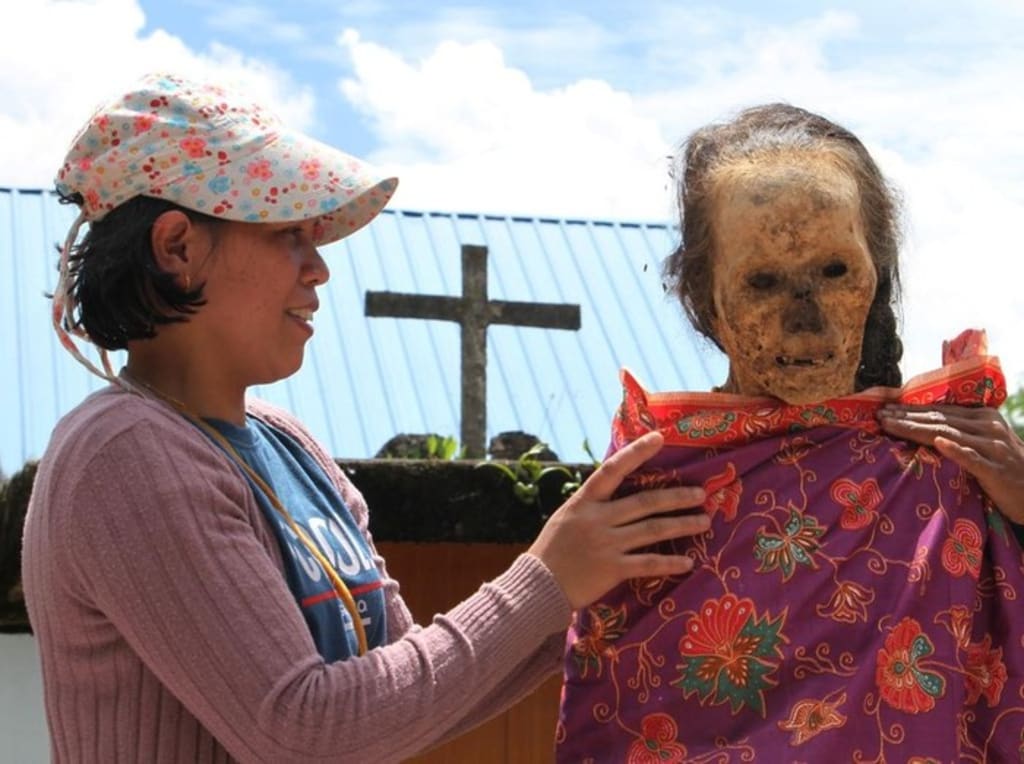Unraveling Ma'nene Ritual:
Honoring Ancestral Legacy in Toraja Culture

Introduction: In the verdant highlands of South Sulawesi, Indonesia, amidst the rugged terrain and lush landscapes, lies a unique cultural practice that has fascinated the world for centuries: the Ma'nene Ritual of the Toraja people. This ritual, steeped in tradition and reverence, offers a glimpse into the profound connection between the living and the departed, showcasing the enduring legacy of Toraja culture. In this article, we delve into the depths of the Ma'nene Ritual, exploring its origins, significance, controversies, and the enduring impact it has on the Toraja community and beyond.
Unraveling the Origins of Ma'nene: The roots of the Ma'nene Ritual can be traced back to ancient Toraja beliefs and customs, deeply intertwined with their animistic worldview and spiritual practices. According to Toraja folklore, the ritual emerged as a way to honor and respect the spirits of the deceased, ensuring their continued presence and blessings upon the living. Over time, Ma'nene evolved into a elaborate ceremony, symbolizing the eternal bond between the living and their ancestors.
The Ritual Process: The Ma'nene Ritual unfolds in a series of intricate steps, each laden with symbolism and significance. It begins with the retrieval of the deceased from their resting places, as families carefully exhume the bodies from their graves. With utmost reverence, the bodies are then cleansed, bathed, and adorned in fresh clothing and accessories, symbolizing a renewal of their presence among the living. The ritual culminates in a grand procession, as families proudly display the adorned bodies to the community, celebrating the enduring legacy of their ancestors.
Significance and Symbolism: At the heart of the Ma'nene Ritual lies a deep reverence for ancestry and tradition. For the Toraja people, the ritual serves as a powerful means of honoring their forebears, ensuring their memories endure through the generations. It is believed that by caring for the deceased in this manner, their spirits will continue to watch over and protect their descendants, guiding them through life's journey. Moreover, Ma'nene serves as a tangible expression of love and respect for the departed, reaffirming the bonds that transcend the boundaries of life and death.
Controversies and Debates: Despite its cultural significance, the Ma'nene Ritual has not been immune to controversy and debate. Critics have raised concerns about the ethical implications of exhuming and displaying the deceased, arguing that such practices violate modern standards of dignity and respect for the dead. Furthermore, questions have been raised about the impact of tourism on the integrity of the ritual, with some expressing fears that commercialization may dilute its authenticity and spiritual significance.
Ma'nene in the Modern World: In recent years, the Ma'nene Ritual has garnered increasing attention from the global community, as tourists and scholars alike seek to unravel its mysteries and explore its cultural significance. While the ritual remains deeply rooted in tradition, it has also adapted to the changing times, evolving to accommodate modern sensibilities and concerns. Efforts have been made to strike a balance between preserving the integrity of the ritual and respecting the rights and dignity of the deceased, ensuring that Ma'nene continues to endure as a symbol of Toraja identity and heritage.
Conclusion: In the rugged highlands of South Sulawesi, amidst the verdant landscapes and rolling hills, the Ma'nene Ritual stands as a testament to the enduring legacy of Toraja culture. Through its intricate ceremonies and profound symbolism, the ritual offers a window into the rich tapestry of Toraja beliefs and traditions, showcasing the deep reverence and respect the Toraja people hold for their ancestors. As the world continues to evolve, the Ma'nene Ritual serves as a poignant reminder of the timeless connection between the living and the departed, bridging the gap between past and present, tradition and modernity.
About the Creator
Enjoyed the story? Support the Creator.
Subscribe for free to receive all their stories in your feed. You could also pledge your support or give them a one-off tip, letting them know you appreciate their work.





Comments
There are no comments for this story
Be the first to respond and start the conversation.